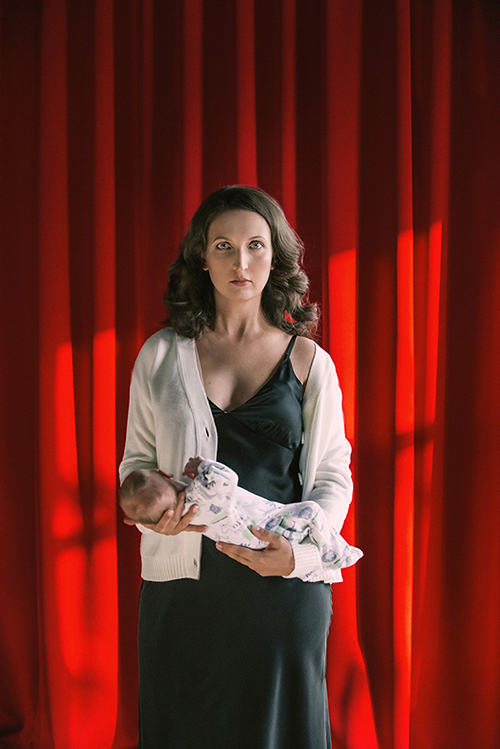The text of this interview was adapted from the video interview organised by Educational Human Rights House Chernihiv for the third edition of the “Portraits of Strength” photo exhibition. The photo was taken by Kateryna Mostova in Kyiv, Ukraine, August 2024.
Why did you become a human rights defender?
I became a human rights defender the moment I started helping people. I can’t say it was conscious, that at some point I thought, “I’m a human rights defender” – no, absolutely not.
“[In 2013] during the peaceful protest of Euromaidan in my home city Luhansk – when I joined the struggle of civil society against the back then president, against corruption, was probably the moment when I joined the human rights movement.”
“Following the occupation and war which started in Luhansk in 2014, my husband going through captivity, and our family being hunted for due to pro-Ukraine, pro-European-integration views, we had to escape from our hometown. As we moved to Kyiv, we started active volunteer work supporting [IDPs]. As I was the same as those people, it helped me to understand and help them.”
What is the nature of your work and what challenges do you face as a Woman Human Rights Defender?
“Since 2014 our volunteer initiative ‘East SOS’ has been helping those affected by the war and grew into a charitable foundation. With the start of the full-scale invasion in 2022, the activities of our team scaled up very much. We’ve been supporting our colleagues and beneficiaries, mainly from eastern Ukraine. And you’ve probably seen from the media or from films that certain cities no longer exist. And these are our hometowns.”
We face a huge challenge to work with helping the victims [of war], to help move our country towards victory, while making sure that our children remain alive, mentally and physically healthy.
“I don’t know if it’s hard to be a woman, now it is difficult for everyone. A woman human rights activist, like any other woman though, has several types of burdens that do not disappear regardless of whether there is a war or a peaceful life… There is still a family, children, there is a duty to create a decent life for your loved ones, or at least try to do it.”
“Also, my own challenge lies in the fact that my husband [Oleksii Bida, human rights defender, Coordinator of the UHHRU Documentation Center before the full-scale war] and some of my friends human rights defenders are now among the servicemen, and I also support them and their military units as a volunteer. This is not a humanitarian activity, this is to help the army, but in Ukraine there is no other way – if there is no military protection, the whole of Ukraine will be turned into what we have seen happen in Bucha and other temporarily occupied territories.“
What is the current human rights situation in your country?
“Currently, the situation with human rights in Ukraine is quite complex. On top of what we’ve had before the full-scale war – corruption, the situation with the protection of human rights defenders and civil society activists, now the war affects all regions of Ukraine. Everyone is affected by this war, everyone has a family member or a friend who was wounded or fighting or suffered in other ways. And this is a big tragedy and a challenge for us to work with.”
What kind of human rights situation in your country would you like to see in the next 30 years?
“First of all, I would like to see the future of Ukraine without war, secondly, Euro-integrated, and thirdly, it is very important to develop education and the social sphere in our country.”
“The positive future is a country without corruption, a country where the government is guided by the principles of human rights in making decisions.”
“If we are to dream then I dream that my work would not be needed in the future.”
Can you describe your motivation to be a human rights defender?
“A lot of people need help, and I have to be around these people.”

About Portraits of Strength
Women human rights defenders (WHRDs) work to protect and advance freedoms while facing discrimination and stereotypes about their role and participation in society.
HRHF seeks to honour and promote independent women human rights defenders and their work through the “Portraits of Strength: Women Defending Human Rights” photo exhibition and highlight the human rights situation in the countries of the Network of Human Rights Houses.
The exhibition, now in its third edition, shares portraits and stories from WHRDs working on a variety of issues including the documentation of human rights violations and alleged war crimes, rule of law, women’s rights, political prisoners, freedom of expression, and more.
Find out more here.





